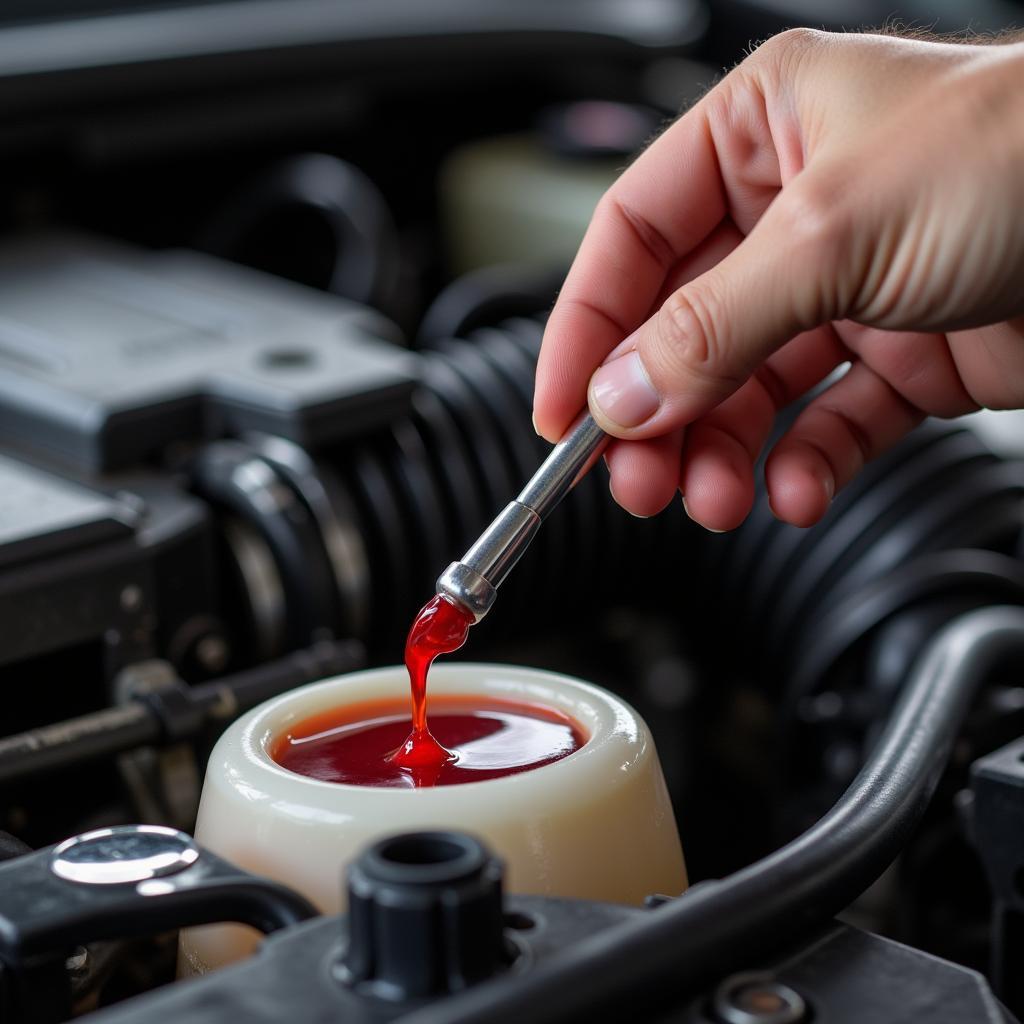When Does a Car Need Transmission Service?
Knowing when your car needs transmission service can be tricky. Unlike regular oil changes, there’s no magic mileage number that applies to every vehicle. However, understanding the signs of a struggling transmission can save you from costly repairs down the line.
 Checking Transmission Fluid
Checking Transmission Fluid
Recognizing the Red Flags: Common Signs Your Transmission Needs Attention
Your car’s transmission is responsible for shifting gears and transferring power from the engine to the wheels. A healthy transmission ensures a smooth, responsive driving experience. Here’s when you should start paying attention:
1. Slipping Gears
This is a major warning sign. If your engine revs high but your car doesn’t accelerate accordingly, or if you experience a sudden jolt during gear changes, your transmission is struggling to engage gears properly.
2. Rough Shifting
A healthy transmission should shift smoothly. If you feel resistance, grinding, clunking, or banging when shifting gears, it’s a sign of internal wear and tear that requires immediate attention.
3. Transmission Fluid Leaks
Transmission fluid is vital for lubrication and cooling. A leak can lead to serious damage. Look for red fluid puddles beneath your parked car.
4. Burning Smell
Overheating transmission fluid can emit a burnt odor. This often indicates a lack of fluid or internal problems within the transmission system.
5. Noisy Transmission
Whining, humming, or buzzing noises, particularly in neutral or park, can indicate worn gears or bearings, signaling potential transmission problems.
Factors Influencing Transmission Service Intervals
While there’s no one-size-fits-all answer to “When Does A Car Need Transmission Service,” several factors can influence how often your car might need it:
- Driving Conditions: Stop-and-go city driving, towing heavy loads, and driving in extreme temperatures can put extra stress on your transmission.
- Vehicle Age and Mileage: Older vehicles and those with higher mileage are more susceptible to wear and tear, requiring more frequent transmission checks.
- Transmission Type: Automatic transmissions generally require more frequent service than manual transmissions.
- Manufacturer Recommendations: Always consult your car’s owner’s manual for specific service interval recommendations.
Don’t Delay: The Importance of Timely Transmission Service
Addressing transmission problems early on is crucial. Ignoring the warning signs can lead to:
- Expensive Repairs: Major transmission repairs or replacements can be significantly costly.
- Safety Hazards: A malfunctioning transmission can put you and your passengers at risk.
- Decreased Vehicle Lifespan: Neglecting transmission maintenance can ultimately shorten the life of your vehicle.
Conclusion
Recognizing the signs of a struggling transmission and addressing them promptly can save you time, money, and potential headaches down the road. Regular checks, fluid changes, and prompt professional attention can help ensure your transmission’s longevity and your vehicle’s optimal performance.

